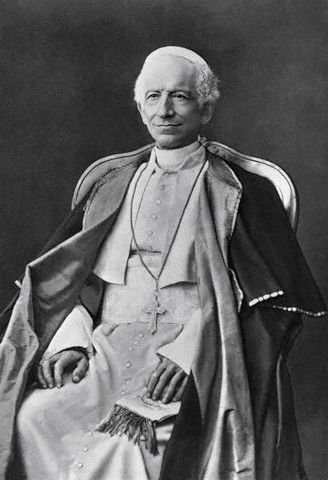The Goal Of Socialists Is Socialism - Not Prosperity
About 40 years ago, economist Bruce Yandle went to Washington to work for the Council on Wage and Price Stability, ready to apply his knowledge of economics and educate his fellow workers.
After all, he reminisces, one eye-rolling, head-scratching decision
after another was coming from government regulators that surely someone
versed in economics could expose as stupid, wasteful, and downright
ridiculous.Government Serves the Interests of Government
At some point, Yandle realized that the lay of the regulatory land looked quite different in Washington than it did in Clemson, South Carolina, where he was on the faculty at Clemson University. Regulators — and the representatives of the enterprises they regulated — were not looking to create an atmosphere in which the government tried to find the “optimal” set of regulatory policies that both minimized regulatory costs and allowed for the maximum removal of whatever “externalities” were created.No, as Yandle writes:
… instead of assuming that regulators really intended to minimize costs but somehow proceeded to make crazy mistakes, I began to assume that they were not trying to minimize costs at all — at least not the costs I had been concerned with. They were trying to minimize their costs, just as most sensible people do.The more he examined the situation, the more he realized that all of the various actors in the system were acting in their own perceived self-interests — regulators, politicians, and those being regulated — and the combination of their interests created perverse outcomes. The “big picture” view that those on the outside of the situation might have is irrelevant to what actually happens, and understandably so.
Far from the stated goals of the regulators and those involved in the process - that regulation was pursued in order to promote a lofty “public interest” - the real purpose of the regulatory apparatus is the promotion of the regulatory apparatus. The system exists to preserve and protect itself.
Socialists Are Interested in Control, not Economic Prosperity
As I observe (and participate in) a few discussions on Facebook and elsewhere about socialism, I have come to a few conclusions about the nature of the arguments and the reasons why socialists remain socialists even as we see the utter failure of socialist economies throughout history. Maybe the meme that appears once in a while — “If socialists understood economics, they wouldn’t be socialists” — might be true, but I doubt it. As I see it, the purpose of establishing socialism is to further promote socialism, not improve the lot of a society and certainly not to promote prosperity.First, and most important, the minds of socialists work differently than do the minds of economists that see an economy as a mix of factors of production, prices, final goods, markets, and entrepreneurs that drive the whole route. Those of us who are economists are fascinated by this process because we see human ingenuity, the coordination of the goals of numerous people, and, when the system works, a higher standard of living for most people.
Socialists, however, don’t see what we see. Instead, they see chaos and unequal outcomes. Not everyone benefits, right? In some situations, someone may lose a job or a way of doing things becomes obsolete. In the end, some people won’t be helped at all, at least not directly, and in the mind of someone that has an organic view of society, the fact that certain entrepreneurial actions taken by some individuals have created goods that meet the needs of others is irrelevant. Society should be providing those goods for free! People should not have to pay for what they need!
Are you a surgeon who had done well financially because you have performed medical miracles for people who desperately needed your services? You have exploited sick people! Are you like Martha Stewart, who became wealthy in part by showing people how to make holiday celebrations better? What about the poor? They don’t have nice houses!
When I first started writing about economics nearly 40 years ago, I was like Bruce Yandle, believing that all that was needed to convince socialists to stop being socialists was a well-reasoned economic argument. You know, explain that entrepreneurs don’t earn profits by exploiting workers, but rather entrepreneurs make workers better off by directing resources to their highest-valued uses. You know, explain how a price system really does result in morally-just outcomes because, in the end, it directs resources toward fulfilling the needs of consumers. And so on.
I still believe the arguments, and over the years have come to understand them even better than I did when I wrote my first article for The Freeman in 1981. (It’s funny how Economics in One Lesson continues to become increasingly relevant to my thinking each time I read it.) However, I believe that the end of all of this activity is — or should be — the improvement of life for people in a way that is not predatory and brings about voluntary cooperation among economic actors. In other words, economic activity is a means to an end, and the end is free people gaining in wealth and standards of living.
A socialist does not and will not see things this way. The end of socialism is not a higher living standard or even making life better for the poor, as much as a socialist will talk about the well-being of poor people. No, the end of socialism is socialism, or to better put it, the ideal of socialism. Once socialism is established, as it was in Venezuela or in the former USSR or Cuba, the social ideal had been met no matter what the actual outcome might be.
But what about the problems that inevitably occur in a socialist economy? Are not socialists shaken by the economic meltdown in Venezuela? The answer is a clear NO. For example, The Nation, which has supported various communist movements for generations, takes the position that Venezuela suffers from not enough socialism:
If socialism is understood as a system in which workers and communities (rather than bureaucrats, politicians, and well-connected entrepreneurs) exercise effective democratic control over economic and political decision-making, it would appear that Venezuela is suffering not from too much socialism, but from too little. Who can deny that Venezuela would be much better off if the hundreds of billions of dollars reportedly diverted through corruption were instead in the hands of organized communities?The author assumes, of course, that socialism can be separated from the state, which shows either dishonesty or naivety, or perhaps both. After all, the author continues by claiming that the vast system of price controls the government has laid down over Venezuela’s economy has had little economic effect and certainly has not been harmful, just as the author assumes that because most businesses in Venezuela officially are privately-owned, the government has little economic control over their operations. (As we know, the government there has seized businesses, arrested store owners for raising prices in the face of blizzards of paper money, and made ridiculous claims about conspiracies to overthrow the government.)
The one thing the author does not suggest is the government backing off its policies and its socialist ideology. To do so, obviously, would mean that socialism had failed and no socialist is going to ever embrace the idea that socialism could fail.
Perhaps the best example of this is Robert Heilbroner’s famous 1989 New Yorker article, “The Triumph of Capitalism,” written even before the Berlin Wall went down, along with the communist governments of Eastern Europe and the USSR. He followed this a year later with “After Communism,” also in the New Yorker. In his first article, the Marxist Heilbroner wrote:
The Soviet Union, China & Eastern Europe have given us the clearest possible proof that capitalism organizes the material affairs of humankind more satisfactorily than socialism: that however inequitably or irresponsibly the marketplace may distribute goods, it does so better than the queues of a planned economy ... the great question now seems how rapid will be the transformation of socialism into capitalism, & not the other way around, as things looked only half a century ago.Yet, it is clear, especially after the second article, that Heilbroner was not advocating the establishment of free markets, but rather saw the collapse of the communist system as little more than a strategic pause of the Long March to Socialism. To reach that Utopia, wrote Heilbroner, socialists needed to turn to environmentalism to deliver the goods. (That most of the socialist countries also were ecological disasters did not penetrate Heilbroner’s mind, and that should not surprise anyone. To Heilbroner, the end of socialism was not a better way to produce and equally distribute goods; no, the end of socialism was socialism.)
In other words, even after seeing the socialist system that economists like he, John Kenneth Galbraith, and Paul Samuelson praised for a generation melt down right in front of him, Heilbroner could not bring himself to admit that maybe socialists needed to turn in their membership cards and promote capitalism. No, Heilbroner decided that socialists simply needed new strategies to find ways to have state (read that, social) control of resources and economic outcomes. Interestingly, he wrote these words even after acknowledging that Ludwig von Mises and F.A. Hayek were correct in their assessment of socialism’s “economic calculation problem,” but even that admission did not bring Heilbroner to the logical end of his analysis: total rejection of the socialist system.
Like the Fonzie character from Happy Days that never could admit being “wrong” on an issue, Heilbroner — and others like him — could not concede that socialism in any form still would run aground, be it in providing medical care, establishing strict environmental policies, or the establishment of a vast welfare state. The central problem facing socialism — economic calculation — does not disappear just because a government does not directly own factors of production and engage in five-year economic plans.
This hardly means that economists like me should stop writing about the failures of socialism or stop explaining how a private property order and a free price system work. First, one never can be too educated in economic analysis and neither can anyone in public life. Socialists may not be able to abandon their faith, but others who might like to hear well-reasoned arguments might not be willing to join the Church of Socialism in the first place.
Second, there is nothing wrong in speaking the truth and just because socialists and their followers are averse to truth does not mean we give up saying what we know to be true. Just because socialists refuse to believe that socialism fails - even when the evidence points otherwise - does not mean they have the moral and intellectual high ground.
What the Popes Have to Say About Socialism
Anyone who examines the ideology of socialism will see the contrast between the socialist doctrine and the doctrine of the Church.All the same, it is not out of place to review the condemnation of the popes starting with Pius IX and ending with Benedict XVI. Thus, we present what the popes have to say about socialism as they condemn the socialist doctrine thoroughly and entirely. This is not a comprehensive compilation, but just some samples.

PIUS IX (1846-1878):
“Overthrow [of] the entire order of human affairs”
“You are aware indeed, that the goal of this most iniquitous plot is to drive people to overthrow the entire order of human affairs and to draw them over to the wicked theories of this Socialism and Communism, by confusing them with perverted teachings.” (Encyclical Nostis et Nobiscum, December 8, 1849)

Leo XIII (1877-1903): Socialists assail the right of property sanctioned by natural law.
Hideous monster
“…communism, socialism, nihilism, hideous deformities of the civil society of men and almost its ruin.” (Encyclical Diuturnum, June 29, 1881)Ruin of all institutions
“… For, the fear of God and reverence for divine laws being taken away, the authority of rulers despised, sedition permitted and approved, and the popular passions urged on to lawlessness, with no restraint save that of punishment, a change and overthrow of all things will necessarily follow. Yea, this change and overthrow is deliberately planned and put forward by many associations of communists and socialists” (Encyclical Humanum Genus, April 20, 1884, n. 27).
A sect “that threatens civil society with destruction”
“…We speak of that sect of men who, under various and almost barbarous names, are called socialists, communists, or nihilists, and who, spread over all the world, and bound together by the closest ties in a wicked confederacy, no longer seek the shelter of secret meetings, but, openly and boldly marching forth in the light of day, strive to bring to a head what they have long been planning – the overthrow of all civil society whatsoever. Surely, these are they who, as the sacred Scriptures testify, ‘Defile the flesh, despise dominion and blaspheme majesty.’ (Jud. 8).” (Encyclical Quod Apostolici Muneris, December 28, 1878, n. 1)
Socialists debase the natural union of man and woman and assail the right of property
“They [socialists, communists, or nihilists] debase the natural union of man and woman, which is held sacred even among barbarous peoples; and its bond, by which the family is chiefly held together, they weaken, or even deliver up to lust. Lured, in fine, by the greed of present goods, which is ‘the root of all evils, which some coveting have erred from the faith’ (1 Tim. 6:10.3), they assail the right of property sanctioned by natural law; and by a scheme of horrible wickedness, while they seem desirous of caring for the needs and satisfying the desires of all men, they strive to seize and hold in common whatever has been acquired either by title of lawful inheritance, or by labor of brain and hands, or by thrift in one’s mode of life.” (Encyclical Quod Apostolici Muneris, December 28, 1878, n. 1)
Destructive sect
“…socialists and members of other seditious societies, who labor unceasingly to destroy the State even to its foundations.” (Encyclical Libertas Praestantissimum, June 20, 1888)
Enemy of society and of Religion
“…there is need for a union of brave minds with all the resources they can command. The harvest of misery is before our eyes, and the dreadful projects of the most disastrous national upheavals are threatening us from the growing power of the socialistic movement. They have insidiously worked their way into the very heart of the community, and in the darkness of their secret gatherings, and in the open light of day, in their writings and their harangues, they are urging the masses onward to sedition; they fling aside religious discipline; they scorn duties; they clamor only for rights; they are working incessantly on the multitudes of the needy which daily grow greater, and which, because of their poverty are easily deluded and led into error. It is equally the concern of the State and of religion, and all good men should deem it a sacred duty to preserve and guard both in the honor which is their due.” (Encyclical Graves de Communi Re, January 18, 1901, n. 21)

Saint Pius X (1903-1914)
The dream of re-shaping society will bring socialism
“But stranger still, alarming and saddening at the same time, are the audacity and frivolity of men who call themselves Catholics and dream of re-shaping society under such conditions, and of establishing on earth, over and beyond the pale of the Catholic Church, ‘the reign of love and justice’ … What are they going to produce? … A mere verbal and chimerical construction in which we shall see, glowing in a jumble, and in seductive confusion, the words Liberty, Justice, Fraternity, Love, Equality, and human exultation, all resting upon an ill-understood human dignity. It will be a tumultuous agitation, sterile for the end proposed, but which will benefit the less Utopian exploiters of the people. Yes, we can truly say that the Sillon, its eyes fixed on a chimera, brings Socialism in its train.” (Apostolic Letter Notre Charge Apostolique [“Our Apostolic Mandate”] to the French Bishops, August 25, 1910, condemning the movement Le Sillon)

Benedict XV
The condemnation of socialism should never be forgotten
“It is not our intention here to repeat the arguments which clearly expose the errors of Socialism and of similar doctrines. Our predecessor, Leo XIII, most wisely did so in truly memorable Encyclicals; and you, Venerable Brethren, will take the greatest care that those grave precepts are never forgotten, but that whenever circumstances call for it, they should be clearly expounded and inculcated in Catholic associations and congresses, in sermons and in the Catholic press.” (Encyclical Ad Beatissimi Apostolorum, November 1, 1914, n. 13)

Pius XI (1922-1939): “No one can be at the same time a good Catholic and a true socialist.”
Socialism, fundamentally contrary to Christian truth
“… For Socialism, which could then be termed almost a single system and which maintained definite teachings reduced into one body of doctrine, has since then split chiefly into two
sections, often opposing each other and even bitterly hostile, without either one however abandoning a position fundamentally contrary to Christian truth that was characteristic of Socialism.” (Encyclical Quadragesimo Anno, May 15, 1931, n. 111)
Socialism cannot be reconciled with Catholic Doctrine
“But what if Socialism has really been so tempered and modified as to the class struggle and private ownership that there is in it no longer anything to be censured on these points? Has it thereby renounced its contradictory nature to the Christian religion? This is the question that holds many minds in suspense. And numerous are the Catholics who, although they clearly understand that Christian principles can never be abandoned or diminished seem to turn their eyes to the Holy See and earnestly beseech Us to decide whether this form of Socialism has so far recovered from false doctrines that it can be accepted without the sacrifice of any Christian principle and in a certain sense be baptized.
That We, in keeping with Our fatherly solicitude, may answer their petitions, We make this pronouncement: Whether considered as a doctrine, or an historical fact, or a movement, Socialism, if it remains truly Socialism, even after it has yielded to truth and justice on the points which we have mentioned, cannot be reconciled with the teachings of the Catholic Church because its concept of society itself is utterly foreign to Christian truth.” (Ibid. n. 117)
Catholic Socialism, a contradiction
“[Socialism] is based nevertheless on a theory of human society peculiar to itself and irreconcilable with true Christianity. Religious socialism, Christian socialism, are contradictory terms; no one can be at the same time a good Catholic and a true socialist.” (Ibid. n. 120)

Pius XII
The Church will fight to the end, in defense of supreme values threatened by socialism
“[The Church undertook] the protection of the individual and the family against a current threatening to bring about a total socialization which in the end would make the specter of the ‘Leviathan’ become a shocking reality. The Church will fight this battle to the end, for it is a question of supreme values: the dignity of man and the salvation of souls.” (“Radio message to the Katholikentag of Vienna,” September 14, 1952 in Discorsi e Radiomessaggi, vol. XIV, p. 314)The state can not be regarded as being above all
“To consider the State as something ultimate to which everything else should be subordinated and directed, cannot fail to harm the true and lasting prosperity of nations.” (Encyclical Summi Pontificatus, October 20, 1939, n. 60)
